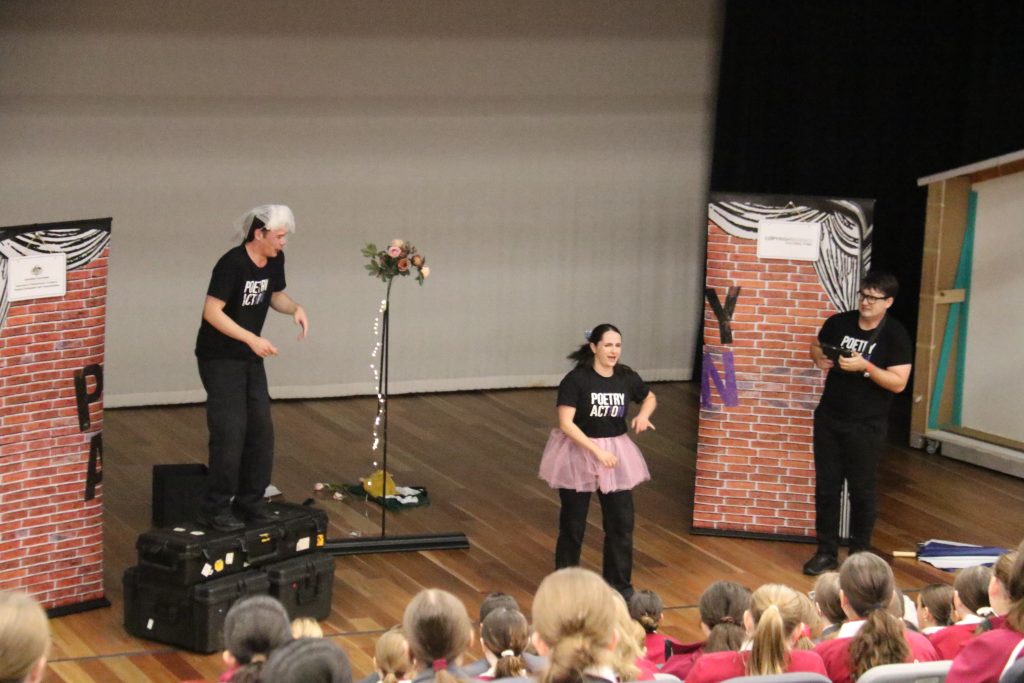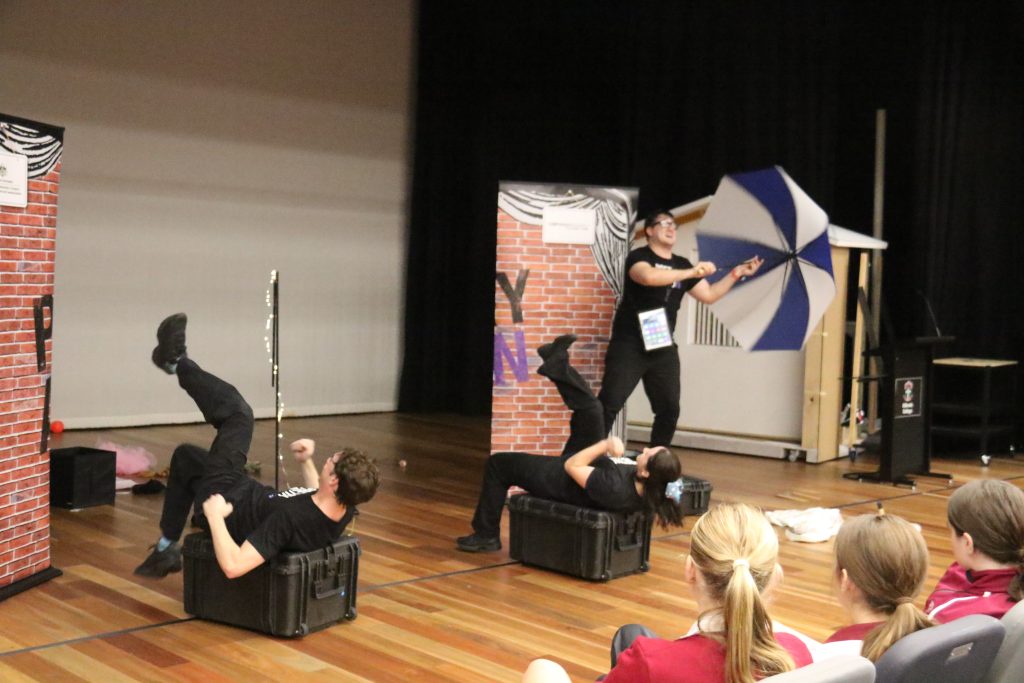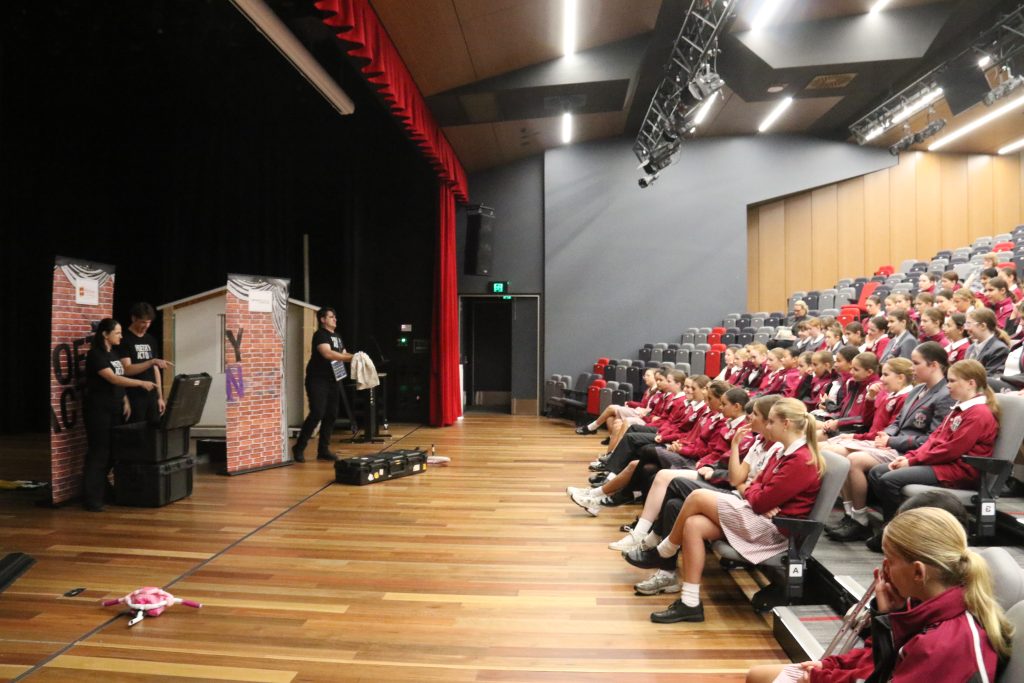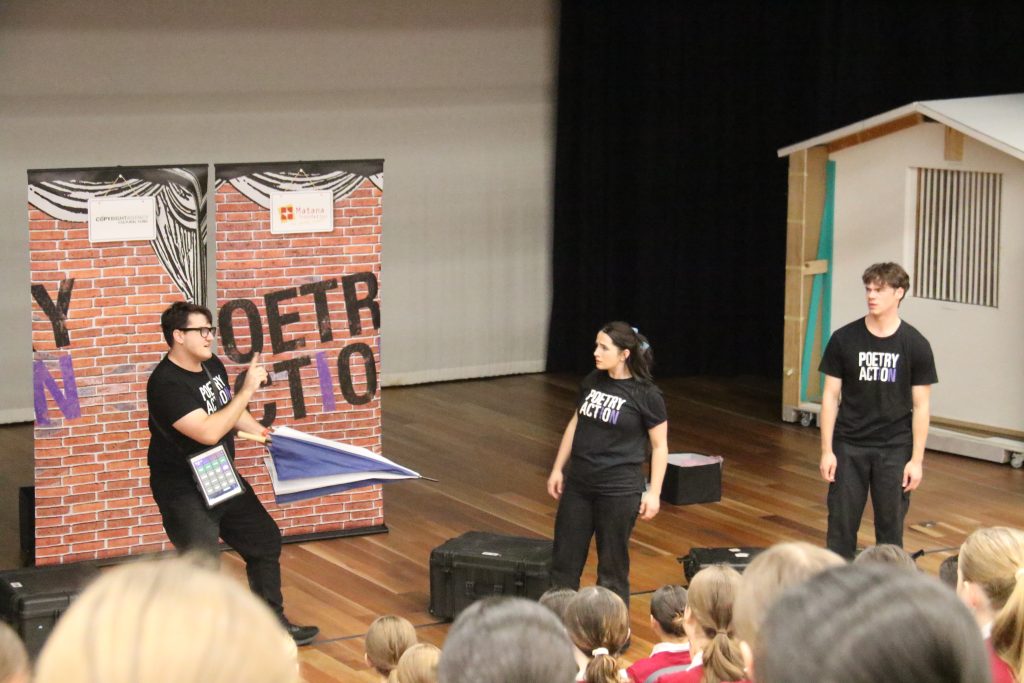English
The author George Orwell understood the relationship between thinking and writing and how important it is for us to possess the language to express the myriad thoughts and feelings we experience. In an age of generative AI, where words can be generated at the press of a button, and where misinformation and disinformation proliferate through social media, Orwell’s warning about the need to think and write for ourselves has never felt more prescient. As English teachers, one of the greatest pleasures we experience is when we witness a student developing the confidence to express themselves in speech and writing. The uniqueness of each student’s voice and their capacity for creativity and originality is a rare and uniquely human gift to be nurtured and valued.
Our Year 7 students were fortunate to experience the dynamic power of language in action as part of their recent English incursion: Unlocking the Poetry Code. The talented team from ‘Poetry in Action’, JT, Josh and Holly entertained our students with their fast-paced and tongue-twisting introduction to the core elements of poetry and provided the students with a memorable demonstration of the versatility of language. We look forward to seeing how the students translate their learning from this experience into their own writing this term and beyond.
From Years 7 to 12, the focus for most students this term is writing. Often students can regard writing as a homogenous form but, of course, it assumes many forms and has many purposes. In their English classes students are learning and consolidating foundational grammatical skills whilst also building their vocabulary and learning how to adapt their expression for different situations and contexts.
One of the best ways for students to develop their writing skills is through reading. It is no coincidence that typically the most confident writers are readers who have been exposed to a wealth of ideas and to rich and varied language. In class students will be exploring a range of literary and multimodal texts that represent a diverse range of voices and ideas from the past and present. Students can learn much from these texts about how to ‘hook’ an audience, how to move between colloquial expression and high artistry, how to develop and build an entertaining or thought-provoking text and how leave their audience with a clear and powerful message, whether implicit or explicit.
As with all learning, developing habits and routines is central to writing practices becoming automatic and ingrained. To move towards writing mastery it is important for students to write regularly, to learn how to self-edit their work and to seek constructive feedback from others. We encourage all students to make writing part of their weekly routines, whether for academic or recreational purposes. Writing can be instructive as well as cathartic and students may find many benefits in recording their ideas and reflections through journals, creative writing, poetry, song or blogs.
Nicola O’Shea
Learning Leader: English







